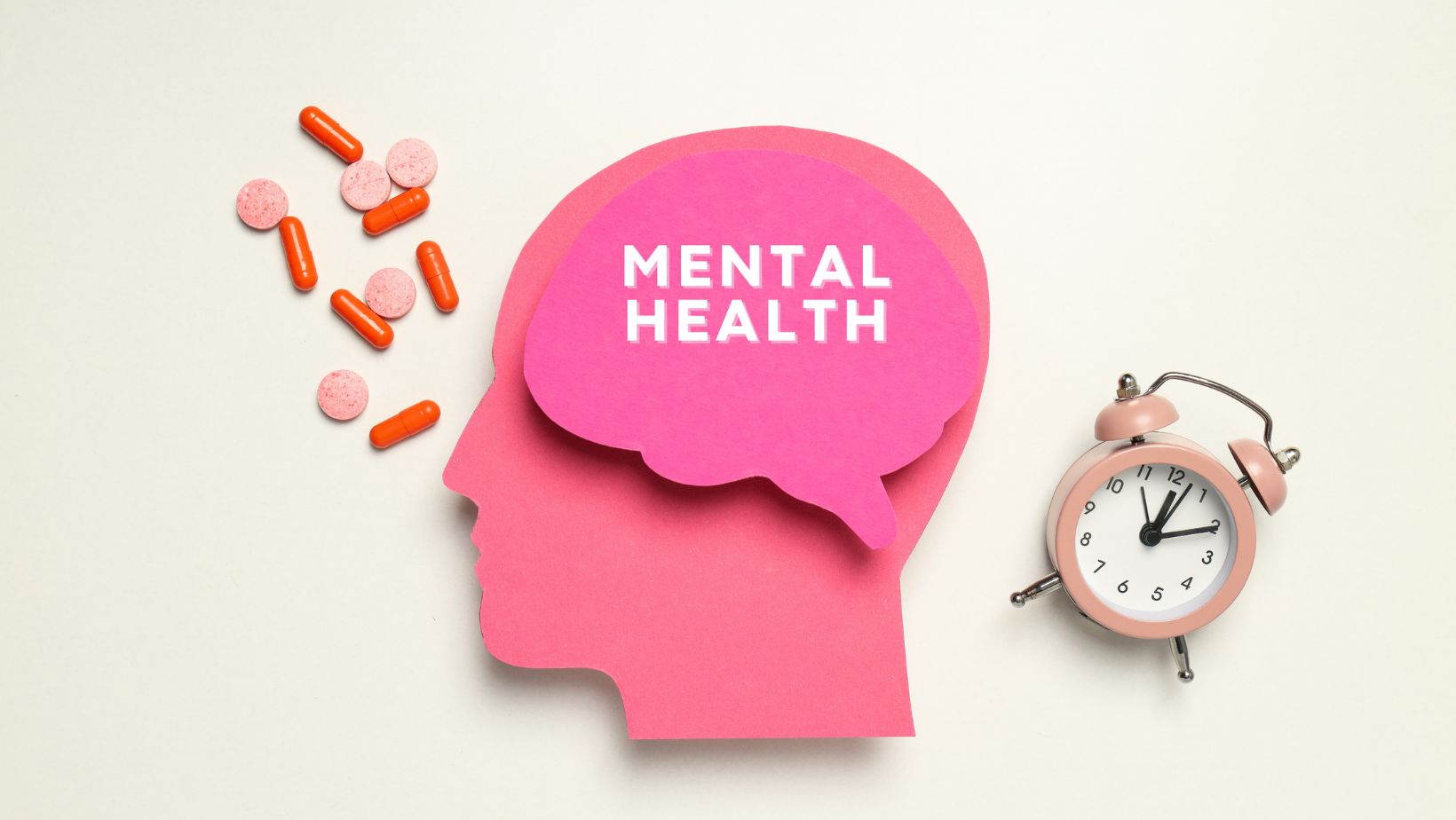Life brings its share of pressures – work, family, finances, and daily routines. When these stresses, coupled with underlying mental health challenges, enter a romantic relationship, they can cast a long shadow. This article explores the significant ways in which stress and individual mental health can impact the dynamics, well-being, and longevity of romantic partnerships. Understanding these connections is crucial for fostering stronger, more resilient relationships and prioritizing both individual and relational health in our lives.
The Multifaceted Ways Stress Erodes Connection
External Pressures and Their Ripple Effect
The daily grind of life presents numerous challenges that can weigh heavily on a relationship. Work deadlines, overtime hours, financial strains from unexpected expenses, family responsibilities, and social obligations all create pressure that doesn’t simply disappear when you walk through your front door. When one partner experiences high stress levels, it inevitably affects their presence in the relationship.

A person returning home after a challenging day might respond negatively to minor issues at home. Someone overwhelmed with responsibilities might withdraw emotionally, seeming distant and uninterested in their partner’s experiences. These ripple effects of external stress can create a tension that neither partner fully understands the source of.
Communication Breakdown Under Pressure
When stress levels rise, our ability to communicate effectively often plummets. Under pressure, we become more defensive, less patient, and more likely to misinterpret neutral comments as criticism. Our listening skills deteriorate precisely when they’re most needed.
Consider a couple facing financial difficulties: one partner mentions a friend’s purchase, and the other interprets this as pressure to spend money they don’t have, leading to an argument about financial priorities. The real issue isn’t about the purchase at all—it’s about feeling inadequate, anxious, and overwhelmed by financial pressure.
Many couples seeking couples therapy report that their most heated arguments occur during periods of heightened stress, when the real message gets lost in emotionally charged exchanges.
Impact on Intimacy and Affection
Stress doesn’t just affect verbal communication—it directly impacts physical and emotional intimacy. When preoccupied with work problems or anxiety, the desire for physical affection often diminishes. Cortisol, the primary stress hormone, can suppress libido and reduce the desire for sexual connection.
Beyond physical intimacy, emotional closeness suffers too. The mental bandwidth required to truly listen, empathize, and connect with a partner becomes limited when stress consumes our thoughts. This creates a troubling cycle: stress leads to decreased intimacy, which creates relationship dissatisfaction, which generates more stress.
Increased Conflict and Difficulty Resolving Issues
When we’re already maxed out, our capacity to handle additional challenges shrinks dramatically. Minor irritations—a messy counter, a forgotten errand—can trigger disproportionate reactions. The patience and flexibility needed to reach compromises evaporates under chronic stress.
What might normally be a simple conversation about household responsibilities can escalate into accusations about not caring or not contributing enough to the relationship. Resolution becomes harder to achieve as both partners operate from a place of depletion rather than resourcefulness.
How Mental Health Challenges Shape Relationship Dynamics
The Impact of Anxiety Disorders
Anxiety manifests in relationships in numerous ways, often creating patterns that both partners struggle to break. A partner with social anxiety might consistently avoid social gatherings, leading to tension and resentment. Someone with generalized anxiety might seek excessive reassurance about the relationship’s status, which can feel exhausting to their partner.
“What looks like possessiveness is often fear-based attachment and anxiety about abandonment,” notes many therapists specializing in couples therapy. These anxiety-driven behaviors, while coming from a place of genuine distress, can create significant strain on relationships.
The Effects of Depression
Depression creates a unique set of challenges in relationships. The emotional numbness, lack of energy, and negative thought patterns characteristic of depression can make a person seem uninterested, withdrawn, or pessimistic to their partner.
When one partner is depressed, shared activities that once brought joy might be abandoned. The non-depressed partner often feels helpless, confused, and sometimes resentful, not fully understanding that their loved one isn’t choosing to withdraw but is struggling with a genuine health condition.
Navigating Mood Disorders
Bipolar disorder and other mood disorders introduce unpredictability into relationships that can be destabilizing for both partners. During manic or hypomanic phases, impulsive decisions might affect shared finances or responsibilities. During depressive episodes, the same person might struggle to participate in basic relationship functions.
These fluctuations require tremendous understanding, patience, and often professional support to navigate successfully.
The Role of Personality Disorders
Certain personality patterns create specific relationship challenges related to trust, emotional regulation, and communication. For example, someone with borderline personality traits might experience intense fear of abandonment, leading to stormy relationships with dramatic breakups and reconciliations. A partner with narcissistic traits might struggle with genuine empathy and mutual support.
These patterns don’t doom relationships, but they do require awareness, commitment to growth, and often professional guidance to create healthy partnership dynamics.
Building Resilience: Strategies for Navigating Stress and Mental Health Together
Open and Honest Communication
Creating a relationship where both partners can discuss stress and mental health openly is fundamental. This means developing a judgment-free zone where admitting to anxiety, depression, or overwhelming stress isn’t met with dismissal or criticism but with understanding.
Practice using “I” statements to express feelings without blame: “I’m feeling overwhelmed by work right now and need some quiet time” rather than “You’re always demanding attention when I’m stressed.”
Prioritizing Self-Care and Mutual Support
Individual self-care practices—whether exercise, meditation, time with friends, or creative pursuits—are essential foundations for relationship health. Partners can support each other’s well-being by encouraging these practices and respecting the time needed for them.
Many couples find that certain self-care activities work well together: morning walks, cooking nutritious meals, or setting technology-free evenings can benefit both partners while strengthening their bond.
Developing Healthy Coping Mechanisms as a Couple
Resilient couples develop strategies for weathering stressful periods together. This might include creating a “stress signal” to communicate when one partner needs extra understanding, establishing problem-solving protocols for financial challenges, or simply knowing when humor might defuse tension.
Regular check-ins about stress levels and mental health can prevent small issues from growing into relationship-threatening problems.
Seeking Professional Help When Needed
When stress or mental health issues significantly impact a relationship, professional support through couples therapy can provide tools and perspectives that partners cannot develop on their own. A trained therapist can help identify unhealthy patterns, improve communication, and develop strategies specifically tailored to the couple’s unique challenges.

Many couples wait until they’re in crisis before seeking help, but earlier intervention typically leads to better outcomes. Professional support isn’t a sign of relationship failure but rather a commitment to growth and health.
Conclusion
The complex interplay between stress, mental health, and romantic relationships shapes our most intimate connections in profound ways. By understanding these influences, we can be more compassionate with ourselves and our partners during difficult times.
The pressures of life and the complexities of mental health are universal realities. By understanding their impact on our romantic relationships and proactively implementing strategies for communication, support, and seeking help when needed, we can strengthen the foundation of our love and build partnerships that are resilient in the face of life’s inevitable challenges. Prioritizing both individual and relational well-being is an investment in a happier and healthier future together.
Remember that every relationship faces challenges—the strongest partnerships aren’t those without problems, but those that develop the skills to weather difficulties together while maintaining connection and respect. With awareness, intention, and sometimes professional guidance, couples can navigate stress and mental health challenges while building deeper, more authentic bonds.
